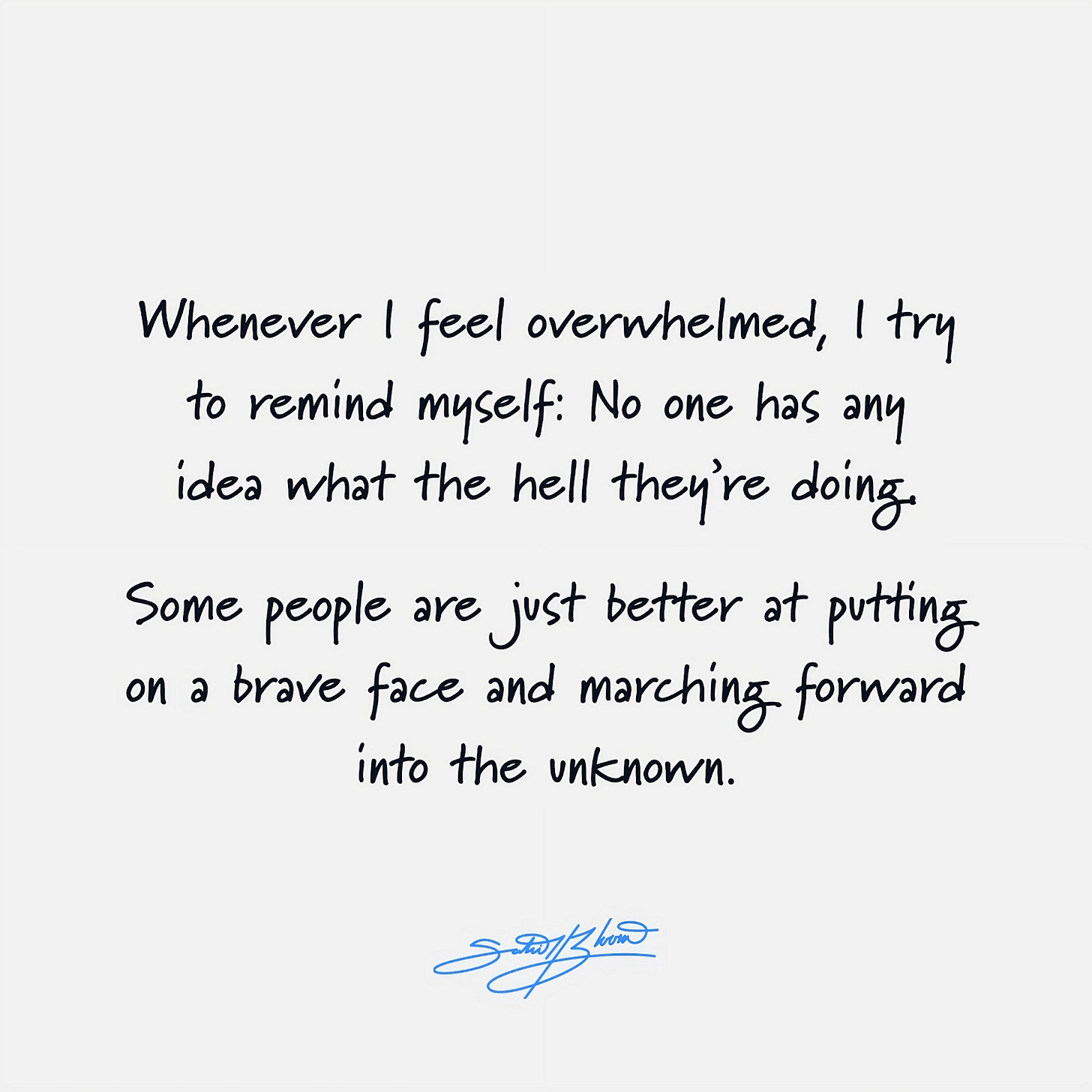As a young professional, I used to be impressed or even intimidated by anyone in a more senior position. They seemed to have everything figured out. They appeared confident, accomplished, and successful, living lives that seemed enviable from the outside. Over the years, I learned that this perception is far from reality.
The Illusion of Having It All Figured Out
In the professional world, there's a commonly held belief that those at the top have everything figured out. This myth suggests that reaching a certain level—becoming a CEO, earning a million dollars, or climbing to the top of the corporate ladder—means you've "made it." Jim Carrey once said, "I think everybody should get rich and famous and do everything they ever dreamed of so they can see that it's not the answer."
Over the years, I’ve met CEOs, millionaires, and well-known speakers—people considered successful by all objective measures. Yet, none of them have everything figured out. They continue to face challenges and uncertainties, just like the rest of us.

The Misunderstanding of What Success Is
Success isn't a destination where challenges disappear, and life becomes perfect. This misconception extends beyond careers. With the Olympics coming to an end soon, many participants will experience post-Olympic depression after reaching the pinnacle of their athletic careers. During this time, athletes might go through periods of confusion, loss of purpose, and emptiness.
I had a similar experience after defending my doctoral dissertation. Instead of joy or relief, I felt empty—like my body was a shell with nothing inside. For days, I felt lost and unsure of what to do next.
A clinical psychologist, Suzanne Gelb, Ph.D., J.D., explains the reason for this common phenomenon:
There’s a reason that ‘accomplishment’ often leaves us feeling ‘empty’—and it’s actually very simple.
Compliments, prizes, awards, good grades, money, and other sources of ‘external validation’ make us feel great for a little while, but ultimately they’re not filling or satisfying.
Because they’re not reliable. They can be given—but taken away just as easily. And it feels like there’s never ‘enough.’
Embracing Life's Continuous Journey
Beware of destination addiction: a preoccupation with the idea that happiness is in the next place, the next job and with the next partner. Until you give up the idea that happiness is somewhere else, it will never be where you are. - Robert Holden, Ph.D.
In our constant pursuit of what's next, we often overlook the present. We miss the joy of now, preoccupied with thinking about the future. I'm guilty of this too. I often say that I live in the future and have a hard time being in the present. Celebrating milestones, big or small, is particularly challenging for me as I quickly move on to the next goal.
To truly embrace the journey, we need to recognize that the process of reaching a goal is more significant than the goal itself. This perspective encourages us to find joy and fulfillment in everyday moments rather than waiting for distant achievements.
Here are three steps we can take:
Learn from the process: Reflect on each up and down to appreciate the lessons and simple joys of life.
Embrace change and adaptability: View change as an opportunity for growth and continuous evolution.
Get comfortable with uncertainty: Build tolerance for the unknown and let go of the need for control.
As we navigate our careers and lives, it's crucial to redefine what success means to us. Rather than viewing it as a final destination or a state of having everything figured out, we should see success as an ongoing journey of growth, learning, and self-discovery. The key is not to strive for a mythical state of perfection, but to find fulfillment in the process itself.





This post really resonated with me, I too often think people who are "ahead" of me have something I don't, some talent, skill, or knowledge I need to get where they got. Learning to enjoy the process and getting comfortable with uncertainty are things I have heard before, but needed to he reminded of, thanks